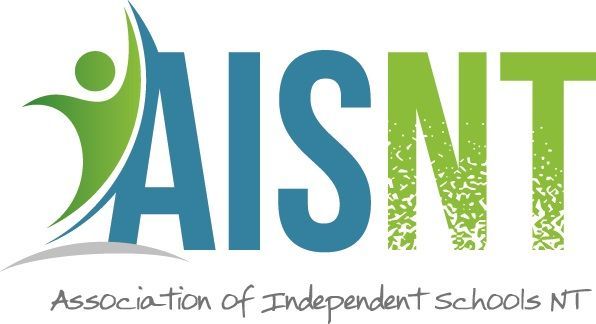Jobs in the Territory
AISNT is not an employing agency for its Member Schools, nor does it have any part in the selection and appointment of staff to positions in Independent Schools. All appointments are managed by the individual school or system.
Current Positions Available
Darwin
The Essington School
Good Shepherd Lutheran College
Haileybury Rendall School
Australian International Islamic College - Darwin
Current Positions | Australian International Islamic College
Milkwood Steiner School
SEDA College
NT Christian Schools
Alice Springs
Alice Springs Steiner School
NT Christian Schools
St Philip's College
Yipirinya School
Yirara College
Remote Locations
Dhupuma Barker College
Mapuru Yirralka College
Nawarddeken Academy
Nyangatjatjara College
Tiwi College
NT Christian Schools
Mäpuru Yirralka College
Unique Job Opportunities
The Northern Territory is an exciting place to work. Independent Schools in the Northern Territory offer choice and diversity.
Independent Schools are always interested to hear from high quality candidates seeking employment.
The Northern Territory is one of the most exciting and rewarding places in which an educator can work. Whether you are a first year teacher or a highly experienced principal, Independent Schools in the NT provide challenges, stimulation, and an opportunity to make a difference.
Our schools are highly diverse. There are large stand-alone Independent schools in Darwin, Alice Springs and small schools in remote communities. Many schools have children from a wide range of ethnic backgrounds. Other schools have wholly Aboriginal enrolments – but given that there are more than 100 Aboriginal languages and dialects spoken within the Territory, it should also be noted that there are large linguistic and cultural differences between many of these schools.
If you are working and living in Darwin/Palmerston or Alice Springs, you will have access to the convenience and comforts of any other Australian urban centre, albeit with a pace of life that is more relaxed than in the capital cities. If you are living and working in a remote community your lifestyle will be markedly different to city life – see below.
Climate
Teaching in the Northern Territory means experiencing a diverse climate.
In the Top End, the year is divided into two seasons:
- The Dry (May to October) brings warm, stable weather.
- The Wet (November to April) is marked by higher humidity, heavy rainfall, and storms.
Temperatures remain fairly consistent throughout the year, averaging 32–33°C, with noticeably higher humidity during the Wet season.
In Central Australia, seasonal variations are more pronounced:
- Summers often see temperatures above 40°C, with long stretches of hot weather.
- Winters are cooler, with daytime temperatures averaging 20°C, while nights can drop below 0°C.
This keeps it factual and descriptive without framing the climate as difficult. Does this feel more aligned with what you're looking for?
Aboriginal Cultural Protocols
With over 31% of its population identifying as Aboriginal or Torres Strait Islander, the Northern Territory has the highest proportion of Indigenous residents in Australia. Nationally, there are more than 250 Aboriginal and Torres Strait Islander language groups and over 700 dialects—a testament to the richness and diversity of cultures across the continent.
Recognising and respecting this cultural and linguistic diversity is vital. It is equally important to acknowledge the vibrant identities and practices that continue to thrive in communities today. When engaging with Aboriginal and Torres Strait Islander students, families, and communities, it is essential to take the time to learn and observe local cultural protocols to ensure respectful and meaningful relationships.
When engaging with Aboriginal and Torres Strait Islander communities, it is important to research local protocols—this can include consulting local land councils and seeking guidance from peers or leadership teams to ensure culturally respectful practice. Developing respectful relationships and taking the time to understand local cultural practices—by consulting land councils and speaking with experienced colleagues or community leaders—helps support culturally appropriate and meaningful engagement.
Living and Working in Remote Communities
Working in a remote setting provides an amazing opportunity to test and strengthen your teaching practices, to learn more about yourself and to form connections with the new people you live with. However, it is not for everyone. It may be the first time in your life where you are in a cultural minority, unable to speak the local language and uncertain about local culture.
As a teacher in a remote community, you are living ‘on Country’ – on land that has been designated by law as Traditional Aboriginal Land. If you are planning to go camping or sightseeing you will need to speak with community leaders, who can give you guidance on access protocols and general advice. Please note that permission to access particular places can change when a person passes away.
In many remote communities the strong preference of local people is that teachers dress modestly, both at school and within the community, and it is respectful to abide by this. The remote communities in which our schools are situated are also ‘dry’, with no alcohol permitted at any time.
As a general rule you will be provided with furnished accommodation, but you may want to bring additional items with you to make you feel more comfortable.
Take sensible precautions to look after your health. These include drinking adequate quantities of water to avoid dehydration; wearing hats and insect repellents; practising good hand washing to avoid contracting a whole range of easily communicable infections; and wearing safe footwear. Consider updating your tetanus and hepatitis inoculations before starting working and living remotely. You will not have access to pharmacies so ensure you have adequate stocks of any medications you require, as well as basic products such as cough medicines, cold and flu tablets, head lice shampoo etc.
www.epharmacy.com.au is an online mail order chemist used by many people in remote areas - but there are a number of other reputable online suppliers.
For more information: Remote Teacher Guide



